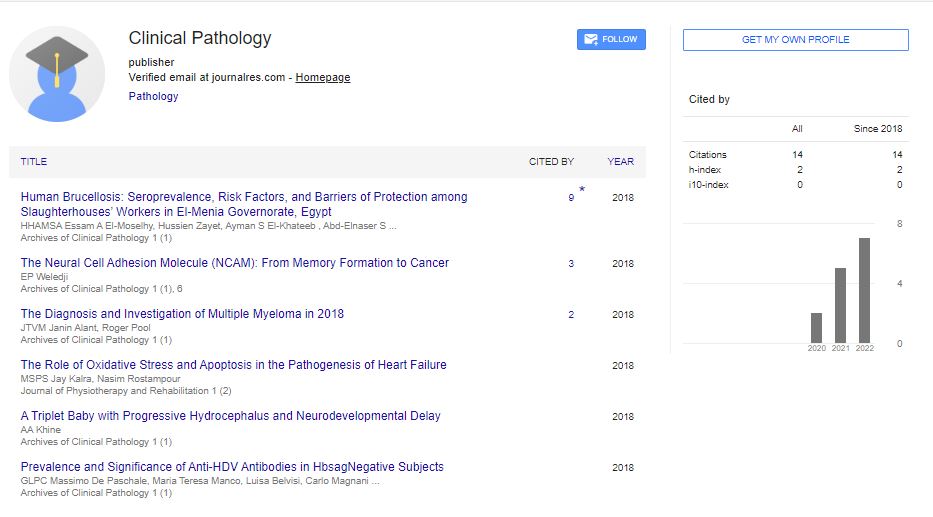Inhibition of β -site amyloid precursor protein cleaving enzyme 1 and cholinesterases by pterosins via specific structure-activity relationship with a strong BBB permeability
Gil Hong Park, Susoma Jannat, Anand Balupuri, Md Yousof Ali, Seong Su Hong, Chun Whan Choi, Yun-Hyeok Choi, Jin-Mo Ku, Woo Jung Kim,Jae Yoon Leem, Ju Eun Kim, Abinash Chandra Shrestha, Ha Neul Ham, Kee-Ho Lee, Dong Min Kim and Nam Sook Kang
Korea University, Korea
Chungnam National University, Korea
Gyeonggido Business & Science Accelerator, Korea
Woosuk University, Korea
Korea Institute of Radiological and Biomedical Sciences, Korea
Jeonju University, Ko
: Arch Clin Pathol
Abstract
We extracted 15 pterosin derivatives from Pteridium aquilinum inhibiting β-site amyloid precursor protein cleaving enzyme 1 (BACE1) and cholinesterases involved in the pathogenesis of Alzheimer’s disease (AD). (2R)-Pterosin B inhibited BACE1, acetylcholinesterase (AChE) and butyrylcholinesterase (BChE) with IC50 of 29.6, 16.2 and 48.1 μM, respectively. Ki values and binding energies (kcal/ mol) between pterosins and BACE1, AChE and BChE corresponded to the respective IC50 values. (2R)-Pterosin B was a noncompetitive inhibitor against human BACE1 and BChE and a mixedtype inhibitor against AChE, binding to the active sites of corresponding enzymes. Molecular docking simulation of mixed-type and noncompetitive inhibitors for BACE1, AChE and BChE revealed the novel binding site-directed inhibition of the enzymes by pterosins and structureactivity relationship. (2R)-Pterosin B exhibited a strong BBB permeability with the effective permeability (Pe) of 60.3 × 10-6 cm/s on PAMPA-BBB. (2R)-Pterosin B and (2R,3R)-pteroside C significantly decreased the secretion of Aβ peptides from neuroblastoma cells overexpressing human β-Amyloid Precursor Protein at 500 μM. Conclusively, our study suggested that a few pterosins are potential scaffolds for multi-target-directed ligands (MTDLs) for AD therapeutics.
Biography
Gill Hong Park is working in Department of Biochemistry and Molecular Biology, College of Medicine, Korea Molecular Medicine and Nutrition Research Institute, Korea University, Seoul 02841, Korea.
E-mail: ghpark@korea.ac.kr
 Spanish
Spanish  Chinese
Chinese  Russian
Russian  German
German  French
French  Japanese
Japanese  Portuguese
Portuguese  Hindi
Hindi 